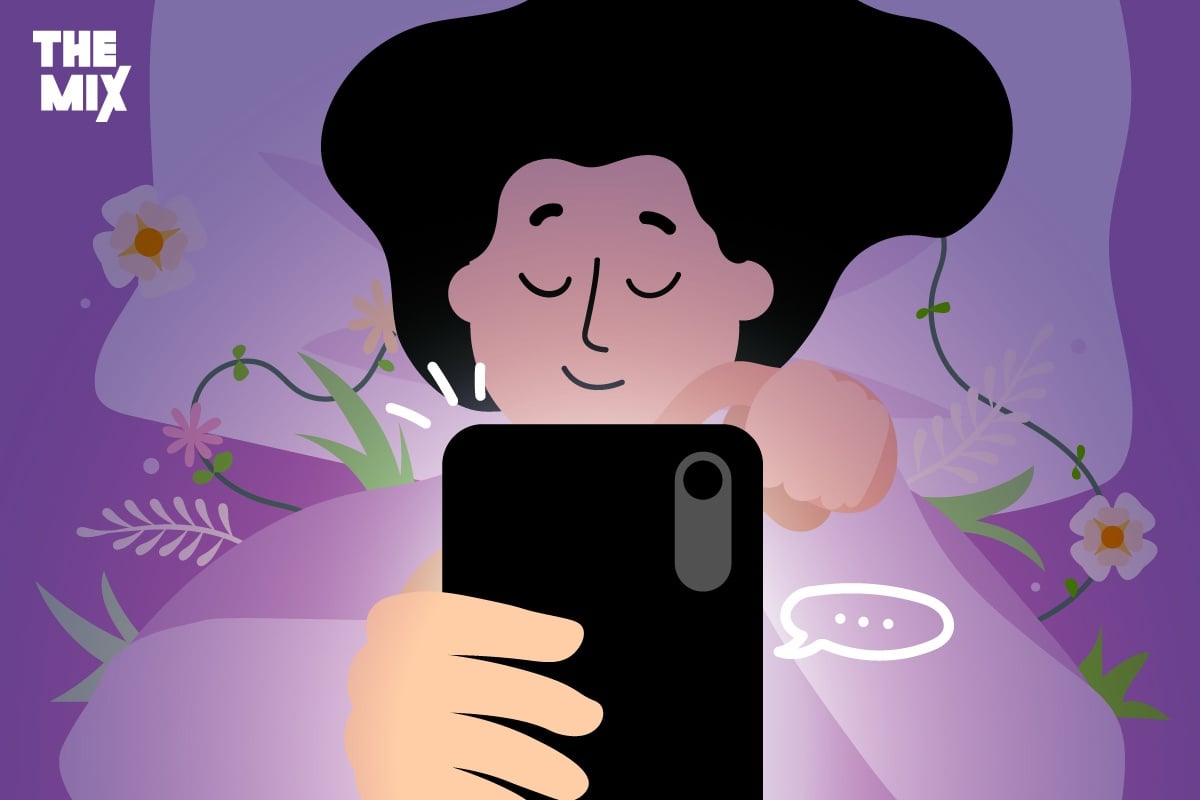What is Bedrotting? Everything you need to know
The concept of self-care has taken on various forms, with one of the most recent trends emerging in the form of bedrotting. This phenomenon has taken the social media world by storm, but there are positive and negative aspects to consider.

This article was written by Mia Barnes. Mia is a health and wellness freelance writer with expertise in self-care and mental health. She is the Founder and Editor-in-Chief of the online publication, Body+Mind magazine.
What Is Bedrotting?
Bedrotting — a term popularised on social media, particularly on platforms like TikTok — refers to the phenomenon where individuals spend extended periods of time in bed. However, bedrotting is better associated with passive activities rather than sleeping. Popular activities include:
- Scrolling through social media feeds.
- Binge-watching TV series.
- Munching on snacks.
- Watching YouTube videos.
While traditionally, spending excessive time in bed might be a sign of laziness or unproductivity, that’s precisely the intention here. Many people online have rebranded bedrotting as a form of self-care. This new perspective frames the act of staying in bed for prolonged periods as a way to prioritise relaxation and enjoyment, and indulge in guilty pleasures. They see it as a deliberate choice to take a break from everyday life’s demands and engage in activities that bring comfort.
The Downside of Bedrotting
There are several reasons bedrotting isn’t best for your health:
- It can disrupt your sleep patterns: Spending excessive time in bed doing activities other than sleeping can disrupt your body’s natural sleep-wake cycle. This can make it difficult to fall asleep when it’s time to rest, as your brain begins associating your bed with wakefulness rather than sleep.
- You’re less active: Bedrotting involves sedentary activities, which can lessen physical health. Regular exercise can boost your sleep quality and overall health.
- It can impact your mental health: Depression occurs when low mood occurs for longer than two weeks. Staying in bed may be an attractive option for those with depression or anxiety, but it can create an unhelpful cycle of inactivity and isolation that worsens these conditions. Instead of addressing underlying issues, bedrotting may serve as a temporary distraction that ultimately prolongs negative feelings.
- It causes social isolation: Spending a long time alone in bed can lead to withdrawal from meaningful social interactions. This can worsen feelings of loneliness and disconnect from others, which negatively impacts mental health.
- You’re less productive: While this is the intention, constantly indulging in bedrotting may detract from productivity and achievement of personal or professional goals. These activities can lead to procrastination and a lack of motivation to engage in more productive pursuits.
- You may become dependant on screen time: The average person spends six hours and 37 minutes a day staring at a screen. Bedrotting involves prolonged exposure to screens, such as phones, tablets, laptops and TV — sometimes even multiple screens at once. Excessive screen time can result in adverse health effects, including eye strain, disrupted sleep, and increased risk of mental health issues like anxiety or depression.
Are There Any Positives?
While many critics view this phenomenon as a symptom of societal laziness or addiction to technology, it can be a healthy and necessary form of self-care in moderation:
- You may feel more well-rested: Just like physical rest is essential for recovery, so is mental rest. Bedrotting is a way to recharge physically and mentally, helping you feel rejuvenated.
- It can reduce stress levels: Spending time in bed engaging in leisurely activities is a great way to relax and alleviate stress. It’s a chance for you to take a break from the demands of daily life and unwind in a comfortable environment.
- It’s an opportunity for self-indulgence and guilt-free pleasure: In a culture that often glorifies productivity and busyness, bedrotting allows you to indulge in guilt-free pleasure without the pressure of constantly doing something. It promotes self-indulgence and self-care without judgement or shame.
Everything in Moderation
While bedrotting has a few positive aspects, moderating is key to reaping its benefits without succumbing to its drawbacks. Ultimately, too much of a good thing is a bad thing. Indulging in leisurely activities in bed can be a form of self-care, but finding a balance is essential to avoid spending too much time in bed.
Setting boundaries and time limits for bedrotting can prevent it from interfering with essential activities like sleep, exercise, work and social interactions. If you find that it’s interfering with other areas of your life, seek healthier ways to recharge your batteries, such as:
- Movements like walking, jogging, yoga or weight lifting.
- Meditation or deep breathing exercises.
- Spending time outdoors.
- Connecting with friends and family.
- Prioritising hobbies like reading, painting, drawing, playing an instrument or gardening.
- Maintaining a proper sleep schedule.
- Taking breaks throughout the day to recharge, even if it’s only for a few minutes.
- Nourishing your body with healthy foods and adequate water.
- Setting boundaries to protect your time and energy, and learning to say no to commitments that drain you.
- Practising gratitude and focusing on the positives.
A Modern Approach to Self-Care
While bedrotting represents a modern approach to self-care, it’s crucial to approach it with mindfulness and moderation. Whether you view it as a positive or negative phenomenon may depend on your habits. However, with a balanced approach, it could become a valuable component of your self-care routine.
Useful resources
For more info on the negative effects of social media, try our articles below:
Next Steps
- Chat about this subject on our Discussion Boards.
By
Updated on 30-May-2024
Sorry, comments closed
No featured article














